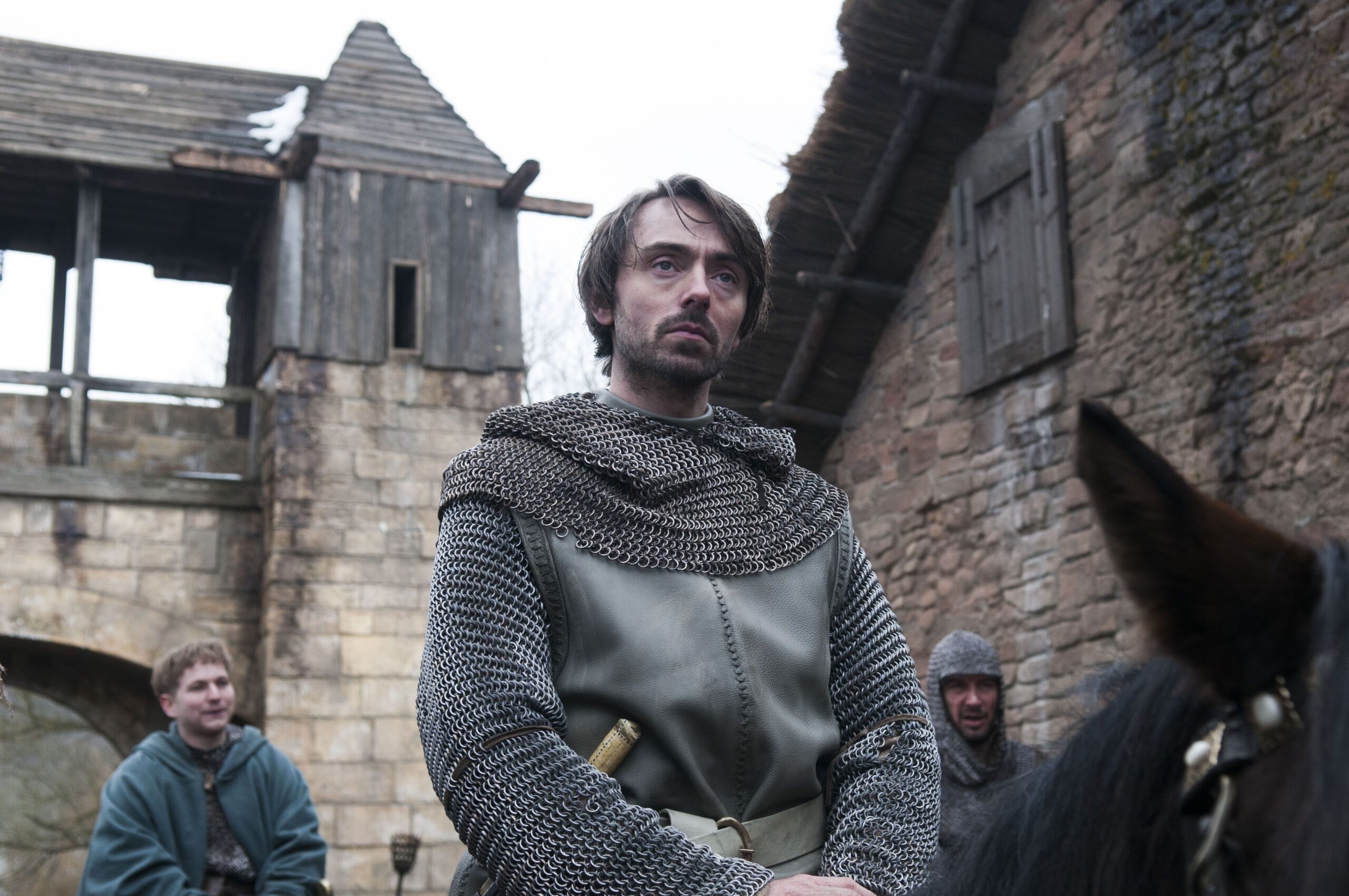In response to this blog post, I received another story about King Alfred that features Ogham. Written under the pseudonym of Merryn.
The campfire flickered in the predawn gloom, shadows dancing across the tents of Alfred’s small encampment. The king sat, his fingers tracing the intricate carving on his knife, while he listened to the low, murmured chant of the druidic scholar before him. They called him Gawain—though Alfred was certain that was a Christianized version of the man’s name, a concession to English sensibilities. In reality, the druid was something else entirely, something older, the memory of which was tucked away in forgotten hollows of the kingdom.
“I wonder, Druidh—how old are these symbols of yours, then?” Alfred asked quietly, his gaze steady. He had been told that Gawain had come from the far west, perhaps even as far as the mysterious Isle of Skye, where fog and magic lingered thick as the tides.
Gawain lifted a smooth stone from his satchel and held it reverently, his eyes sharp with intelligence. He traced a slender finger along its carved markings, rows of lines in careful formations that Alfred could not read.
“The Ogham is older than the tongues of our fathers,” Gawain replied in a voice thick with the cadence of old myths. “Born of the forests, where our ancestors first sang of gods and fate, of root and branch. These symbols speak with the memory of the land itself. To inscribe them is to call upon a power beyond kings or priests.”
Alfred watched, fascinated, as Gawain dipped his fingers into a dark, earthy mixture and began rubbing it into the grooves, bringing the symbols to life, as though the stones themselves had woken to listen. It was a far cry from the words of the Gospel he knew by heart, and yet he felt a stirring, as though a bridge were forming between worlds within the space of that firelight.
“You understand the danger we face?” Alfred asked, though he knew it was unnecessary.
Gawain nodded, his hands never pausing. “The Northmen come to claim more than wealth—they come to tear your land apart, to swallow your people whole. They call upon their gods in war, as do you in peace, Ath’ran. But tonight, it is not the Christ you seek, is it?”
Alfred hesitated. The man’s words were cutting, and they challenged Alfred’s very core. Yet he was no longer a prince, nor even merely a Christian. He was a king now, and his land lay under siege. That was what his people needed him to protect—not some abstract purity, but their very lives, their homes, their memories. And if that required him to walk paths his forebears had not, then he would.
“I am no friend of superstition,” Alfred replied. “And yet, we have no hope of strength if we remain fractured. Every village, every forest, must be bound to Wessex, as a bough is to its roots. These stones—they will hold their power here?”
“The Ogham holds not only protection but also unity,” Gawain replied, now selecting a small wooden carving tool to make his next inscription more precise. “Each symbol is a bond, binding your kingdom together, Wessex to Mercia, hill to river, earth to sky. These stones shall be placed in each of your most vulnerable villages. If done properly, the power of each will amplify, making the very land itself hostile to the invaders. These symbols will forge your borders as surely as a shield-wall.”
Alfred listened, transfixed, as the druid took him through the meaning of each symbol—the birch for new beginnings, the oak for strength, the hawthorn for protection. He felt as though each piece of the ritual carved into him as deeply as into the stone. And then, the final stone. Gawain handed it to Alfred, his eyes solemn.
“This one you must place yourself. The stone of Eala. It is the anchor to all others—the symbol of wisdom and courage.” He pressed it into Alfred’s hand. “Without your strength of will, these stones mean nothing.”
Alfred’s thumb brushed over the sharp lines of the stone, and he closed his hand around it, feeling a strange sense of weight. This was unlike any relic he had ever held. It held no cross, no scripture, and yet, he felt himself tethered to the men and women who had scratched meaning into stones and trees long before his father’s fathers were born.
“Thank you, Druidh,” he said quietly, bowing his head in respect, not to a rival priest, but to an ally in knowledge.
The druid looked at him, his face softening. “Remember, Ælfred, there is no shame in survival. What you do here will outlast even these stones. Now go—and know that the land itself stands with you.”
With Gawain’s words still lingering in his mind, Alfred rose, the stone held tightly in his grasp. For the first time since the Viking onslaught had begun, he felt not just the weight of kingship, but the power that came with it—the power to lead not only with might and scripture, but with the very earth beneath his feet.
In that quiet dawn, a pact was made between king and land, between past and future. And when the Northmen came next to raid, they would find themselves met by a force that was both ancient and new, carved into every stone of the land they sought to conquer.
